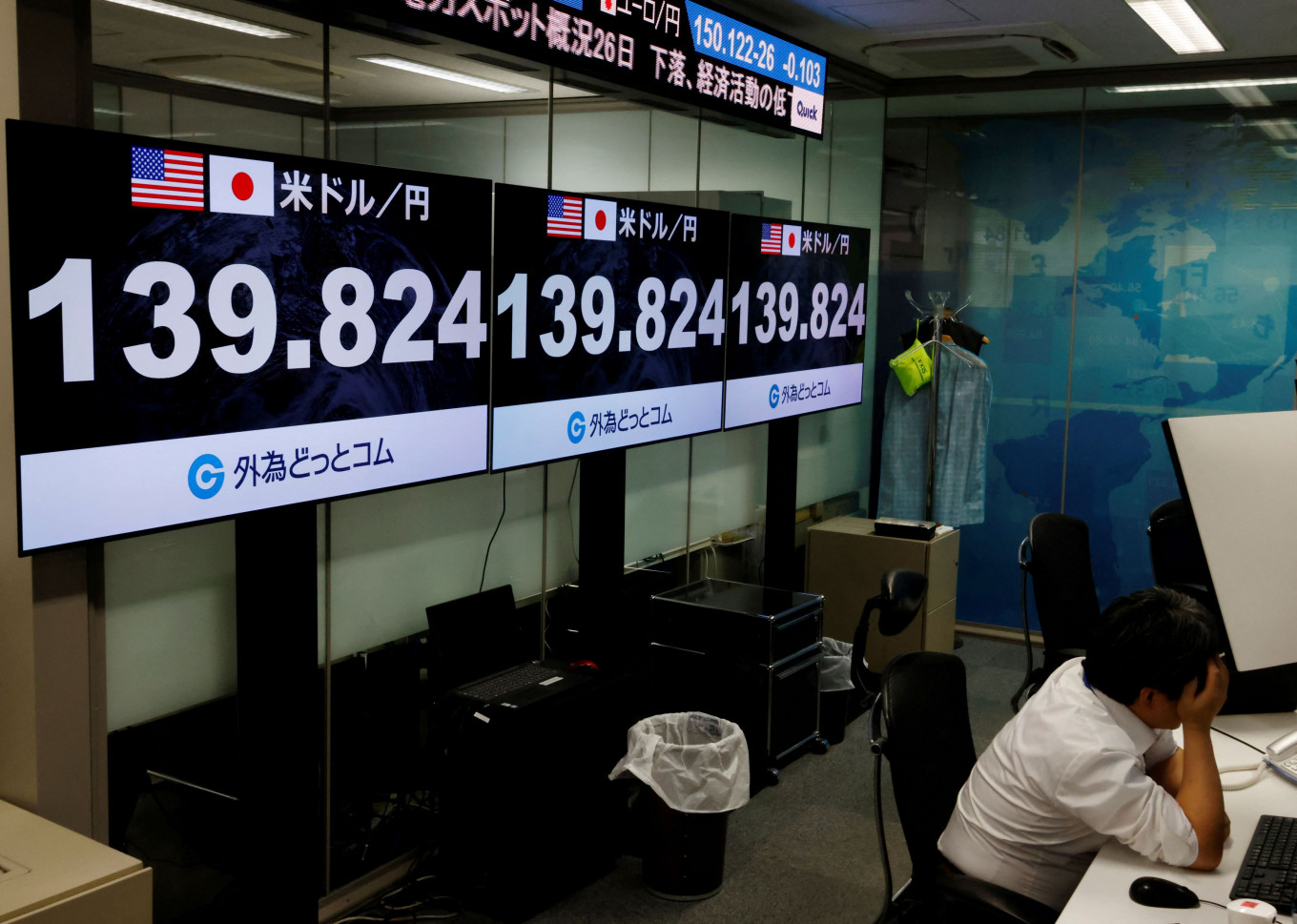Popular Reads
Top Results
Can't find what you're looking for?
View all search resultsPopular Reads
Top Results
Can't find what you're looking for?
View all search resultsIndonesia's rising local investors and bond market resilience
The Indonesian bond market has provided some shelter from the global volatility caused by the COVID-19 pandemic.
Change text size
Gift Premium Articles
to Anyone
I
n a volatile and fear-driven global bond market, a solid and growing investor base is crucial as these investors have local knowledge and can lower complexity. In Indonesia, local investors' participation has risen sharply in the post-COVID-19 period.
The turbulence in the global foreign exchange (FX) and bond market during 2020, and the increasing risk of inflation and tightening in 2021 and 2022 have prevented global investors from entering emerging markets' (EM) local currency (LCY) bond market. At times like these, local investors come to the rescue and boost demand for bonds.
During the initial outflow, Bank Indonesia (BI) stepped in to buy government bonds. Aside from BI's participation during the pandemic through the burden-sharing scheme, there was a more sustained and widespread increase in demand for Indonesian bonds. The banking sector was the first to increase participation when COVID-19 arrived in 2020. The limited loan demand, sufficient liquidity from the government’s national recovery plans and the changing risk perception pushed banks to significantly increase holdings of government bonds. BI's secondary statutory reserve regulations also incentivize banks to hold some of their reserves in highly liquid bond assets. Local banks' ownership of SBN rose from Rp 581 trillion (US$38.7 billion) in 2019 to Rp 1.69 quadrillion in June 2023.
Later, after the bond market stabilized, the government quickly shifted its financing strategy toward increased participation from retail investors amid excess savings of the middle and upper classes. The outstanding amount of retail bonds increased significantly from Rp 114 trillion in 2019 to Rp 273 trillion by June 2023. These improvements occurred when foreign investors reduced their ownership from a peak of Rp 1.06 quadrillion in 2019 to Rp 847 trillion in June 2023 due to the initial shock of the pandemic.
This large outflow has not yet recovered, and it may be too soon to see the impact of lower foreign ownership in the Indonesian bond market. A recent International Monetary Fund Country Report titled "Not all investors are the same: lessons for a changing investor base in Indonesia" predicts that declining foreign ownership in an EM country's bond market may have implications for FX volatility, especially when the outflow happens rapidly.
However, we believe that higher local participation would increase the stability of the Indonesian bond market for two simple reasons. First, the Indonesian bond market has provided some shelter from the global volatility caused by the COVID-19 pandemic. From 2021 to mid-2023, the global bond market did not perform well because of harsh monetary tightening. Foreign investors once again pulled out from Indonesian bonds as they adopted a more risk off sentiment.
During that period, foreigners accumulated a net outflow of Rp 131 trillion, but Indonesian bonds still managed to post a 12 basis points (bps) yield decline. Even when BI raised its interest rate by 225 bps, the yield only increased by 73 bps to 7.67 percent before quickly dropping back to 6.26 percent, proving that the market could still function well if shored up by local investors. Local investors helped the bond market to stabilize, particularly in bad times. In addition, during the period, the standard deviation of United States 10-year treasuries (1.140 percent), which is considered a "global safe asset", is higher than its Indonesian counterpart (0.477 percent).
Second, the ongoing widespread reform effort will likely bring a stable and resilient bond market. BI’s revolutionary novel policy move, operation “twist”, and the implementation of the domestic non deliverable forward (D-NDF) market will likely smoothen the highs and lows of the rupiah exchange rate and further stabilize the yield curve.
Reform in the non-bank sector and higher financial literacy among retail investors should lead to significant growth and demand for government bonds. The ongoing domestic economic slowdown and declining demand for credit are likely to once again push banks to buy bonds. On the supply side, better government revenues likely mean less bond issuance.
Fundamentally, the decline in foreign ownership not only happened with less downside risks, but also ignited hope for better rating acknowledgment. In a recently released report, S&P highlighted the declining foreign ownership of Indonesian bonds as one of the rationales of its defense of Indonesia’s investment grade BBB ratings.
Better government revenues and smaller fiscal deficits with lower yields may push Indonesia to a rating upgrade. The efforts to make such alignments can further increase domestic investor participation in the market.
As we advance, local investors' participation may play an even bigger role in the domestic bond market. Continuing domestic economic momentum, increased financial literacy and the government's reform efforts may result in a more resilient bond market, one that wouldn't budge even if there is crisis in the West.
***
Suryaputra Wijaksana is an economist at Bank Rakyat Indonesia and Emil Muhamad an economist at Bahana TWC Investment Management. The views in this article are personal.










